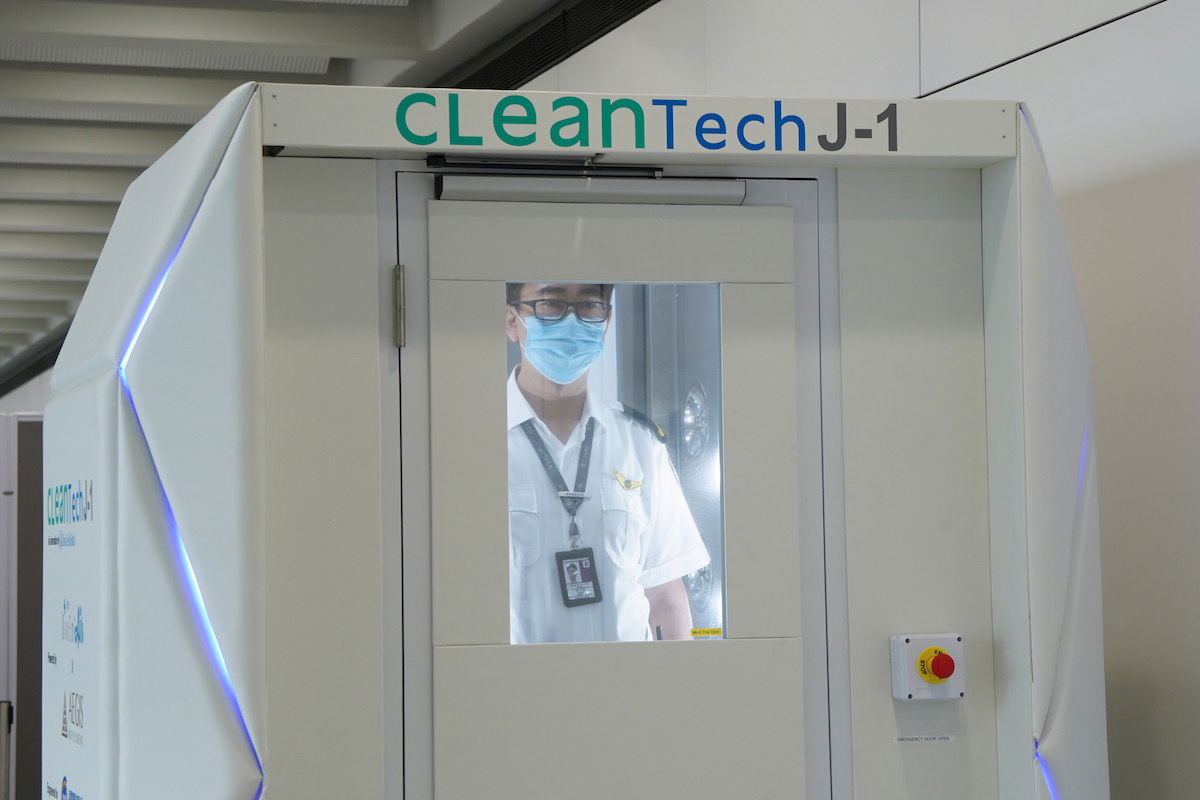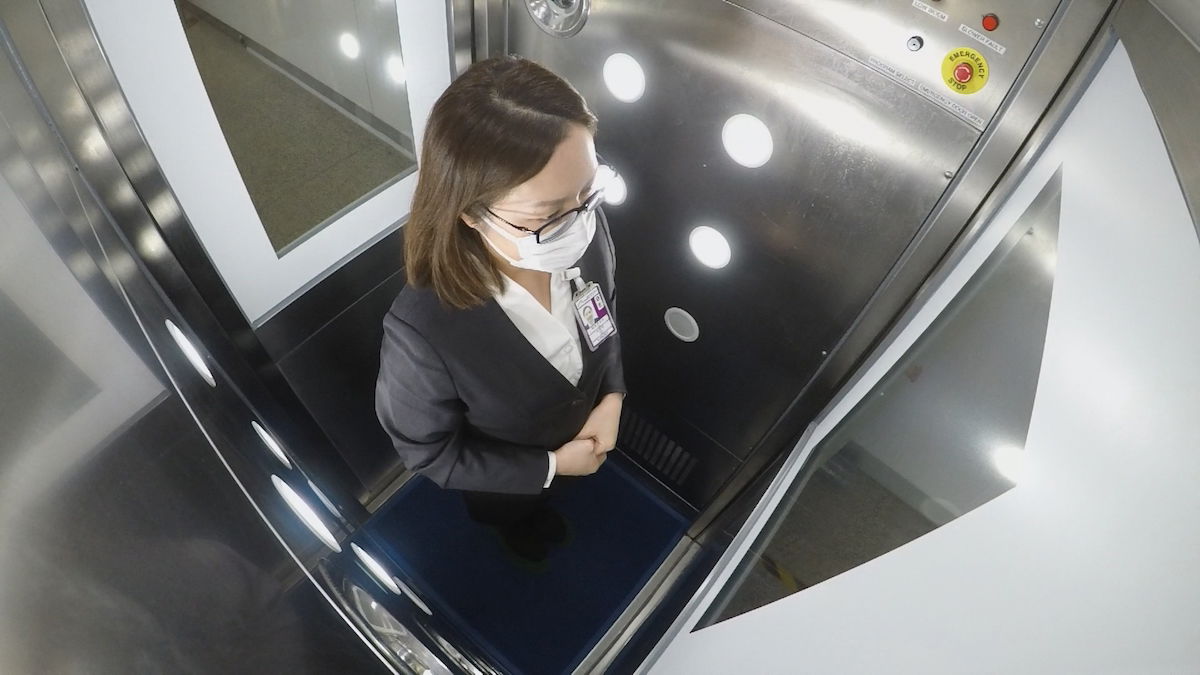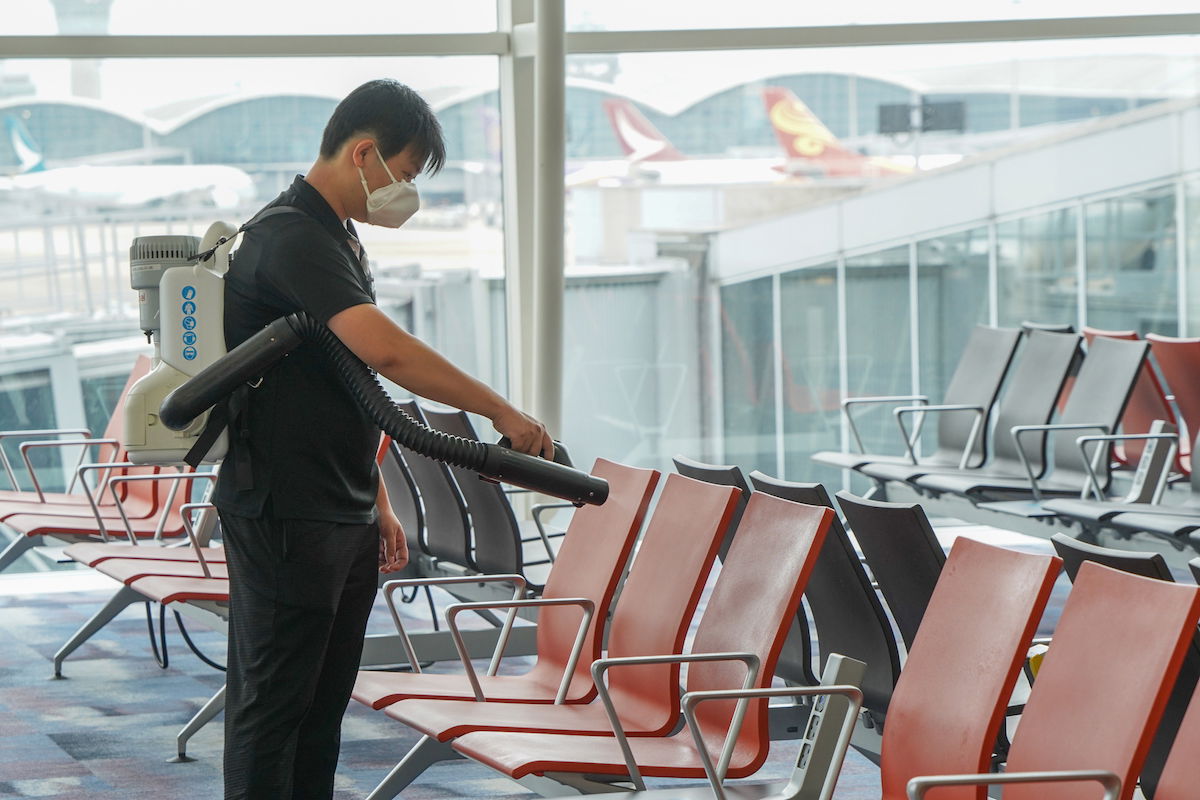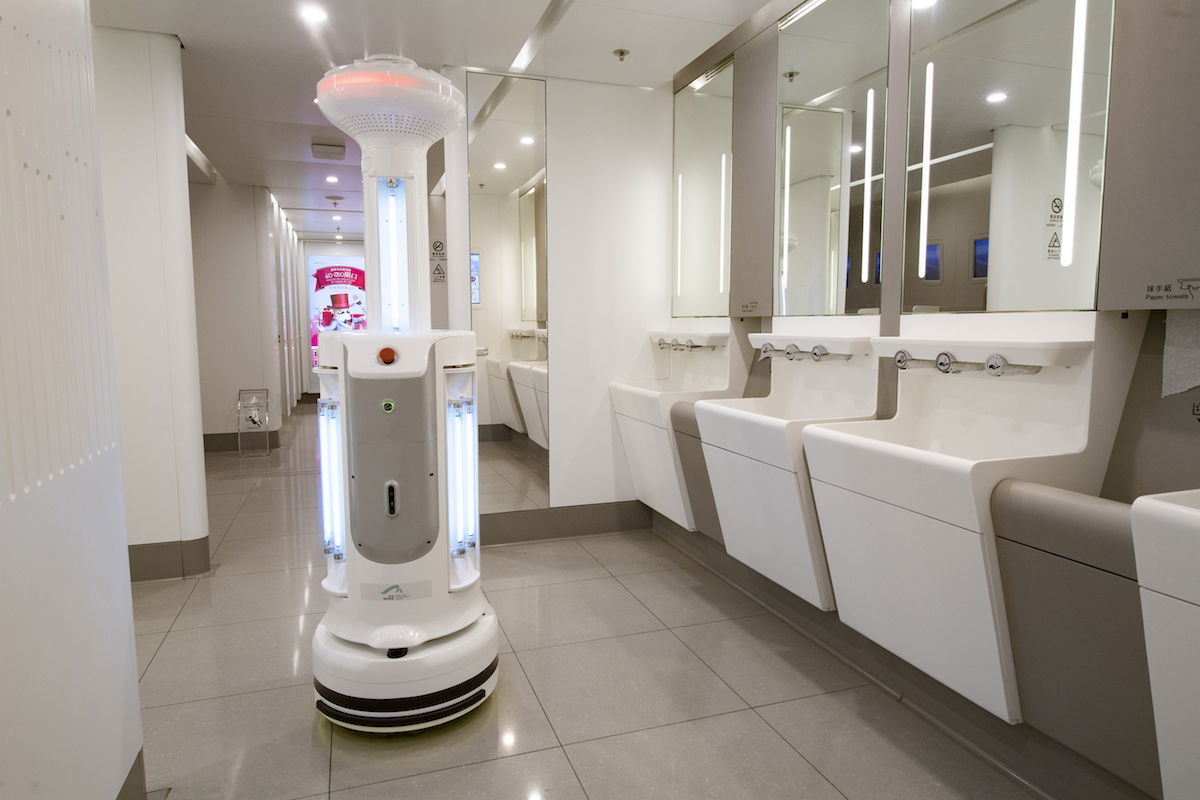Air travel may never return to the pre-COVID-19 normal in terms of what the passenger experience is like. That’s not necessarily a bad thing, but I think it’s safe to assume we’re going to see the aviation industry test all kinds of things.
We’ve seen airlines make face masks mandatory, we’ve seen Etihad start trialing temperature checks at check-in kiosks, and we’ve even seen Emirates perform pre-flight rapid COVID-19 testing.
Well, this past week Hong Kong International Airport started testing out some new technology that apparently can disinfect people… and it doesn’t even involve injecting Lysol!
In this post:
Hong Kong’s new disinfecting technology
Hong Kong International Airport has become the first in the world to introduce “CLeanTech,” a full-body disinfection channel facility. This is initially being used by staff who take part in public health and quarantine duties at the airport for arriving passengers, but we could see this technology expanded to passenger use in the future.

With this:
- People using the facility have a temperature check before entering an enclosed channel
- Then a 40-second disinfection and sanitizing procedure starts

Here’s how the technology is described:
The interior surface of the channel is equipped with antimicrobial coating which can remotely kill virus and bacteria on human bodies and clothing by using the technologies of photocatalyst and “nano needles.” Sanitizing spray is also applied for instant disinfection. The channel is kept under negative pressure to prevent cross-contamination between the outside and inside environment.
Other technology being used by HKIA
In addition to the above futuristic-looking machine, HKIA is also conducing a pilot test of applying antimicrobial coating throughout the passenger facilities.
An invisible coating is applied to high-touch surfaces in the terminal, including handles and seats of trains and passenger buses, check-in kiosks and check-in counters, toilets, seating areas, baggage trolleys, and more. This coating is supposed to destroy germs, bacteria, and viruses.
The trial will go through May, and then the airport may apply this on a long-term basis.

The airport is also using autonomous cleaning robots to disinfect public areas. These robots have ultra violet light sterilizer and air sterilizer, and these robots are being used to clean public toilets and other key operating areas in the terminal.

Bottom line
Only time will tell what new technology and procedures stick at airports long-term, though it’s nice to see that the industry is working on initiatives that could make traveling safer in the future.
I have to say that the disinfectant machine isn’t something I thought we’d ever see at airports, but this is a new era, I guess…





@Max- Who overdoses on soap? I know you're not honestly trying to make an argument that using soap is as bad as spraying powerful chemicals. People have been using soap for thousands of years, and we're still fine. If you consider dry skin a "harmful" result of using soap, all you need to do is apply a moisturizer afterward. Even though regular soap is pretty harmless when used appropriately, it kills coronaviruses even faster than...
@Max- Who overdoses on soap? I know you're not honestly trying to make an argument that using soap is as bad as spraying powerful chemicals. People have been using soap for thousands of years, and we're still fine. If you consider dry skin a "harmful" result of using soap, all you need to do is apply a moisturizer afterward. Even though regular soap is pretty harmless when used appropriately, it kills coronaviruses even faster than harsh chemicals like Clorox and Lysol.
@Endre- Belilinda and Fernsie beat me too it. You might want to find another doctor, since yours would make such an ignorant and uninformed statement as s/he did.
Antibacterial chemicals are ending up in the waterways. If they are going to use this technology I hope there are good regulations and oversight. Oh wait! Didn’t they just weaken and pull funding for the EPA?
Who wouldn't love to step into that little booth, have them fill it with some dense, virus-killing fog, and you take a nice, deeeep breath and hold it for 30 seconds before the door unlocks and lets you out? What a great idea, my lungs could use a nice antibacterial rinse every once in a while!
I think a stable genius invented this.
Endre- I think you may need to think about getting a new doctor. Warm water and soap does kill the virus. The soap and water have an effect on the envelope around the virus which neutralizes it.
Antibacterial soap kills the virus not because it is antibacterial but because of the same action action I describe above. The antibacterial part of the soap does nothing to kill the virus. Antibacterial kill bacteria not virus.
...Endre- I think you may need to think about getting a new doctor. Warm water and soap does kill the virus. The soap and water have an effect on the envelope around the virus which neutralizes it.
Antibacterial soap kills the virus not because it is antibacterial but because of the same action action I describe above. The antibacterial part of the soap does nothing to kill the virus. Antibacterial kill bacteria not virus.
You are correct that it's best to just use soap and water because antibacterial soap does kill good and bad bacteria only so why bother using it to. Continuous use of antibacterial soaps which do not have disinfectants but have products such as triclosan, will also lead to bacteria resistance to it and other antibiotics
@Endre you're an idiot, your "doctor" even more so. https://en.unesco.org/news/how-soap-kills-covid-19-hands
Well, this won't work in USA.
Americans will say this device violates privacy, or can be used to discriminate people. They will think you spray virus on certain group of people and disinfect only Trump supporters. If you are an illegal immigrant you will get detained in there. But per 2nd amendments, who needs this machine when we have guns. We carry guns because it can also kill virus.
Now if you're between 18-45 lets...
Well, this won't work in USA.
Americans will say this device violates privacy, or can be used to discriminate people. They will think you spray virus on certain group of people and disinfect only Trump supporters. If you are an illegal immigrant you will get detained in there. But per 2nd amendments, who needs this machine when we have guns. We carry guns because it can also kill virus.
Now if you're between 18-45 lets go to the beach and party, American style.
Curve is now flat, who cares, American style.
Spraying an antimicrobial coating on surfaces which kills germs, bacteria and viruses sounds good, a bit too good in my opinion. Sure it will kill each of those nasties in varying percentages, but the main objective is to kill the corona-virus. Will it do that?
The normal airport cleaning processes takes care of a lot of germs, bacteria and maybe some viruses, so is this new spray 'coating' just an improved and more thorough...
Spraying an antimicrobial coating on surfaces which kills germs, bacteria and viruses sounds good, a bit too good in my opinion. Sure it will kill each of those nasties in varying percentages, but the main objective is to kill the corona-virus. Will it do that?
The normal airport cleaning processes takes care of a lot of germs, bacteria and maybe some viruses, so is this new spray 'coating' just an improved and more thorough cleaning regime, with a large dash of theatre to make one feel better about travelling?
Most people will be aware (as yukky as it sounds) that every human body carries countless millions of beneficial bacteria, and any intervention to severely reduce these bacteria by any means, as detailed here, will result in interference with the body's natural defences against infection. Multiple exposures as could happen in some over-zealous settings would only compound the problem, not to mention untrained types being in charge of these invasive procedures. Sounds like over-kill (pardon the pun) but am completely unsurprised that is happening at germ obsessed HKG.
Where can I buy one of those robots?
Airports and airlines just don’t get it. Instead of cleaning, cleaning, cleaning AIRPLANES, removing the #*%?! middle seats, & applying social distancing, nothing will get better.
Their solution is to make passengers wear face masks and bring sterilizing materials to avoid disease & clean their airplanes for them.
Zapping people flying? Well, if they’re so smart, why don’t they just “Beam us up?”
@The nice Paul:
Except that COVID-19 HAS made the jump to dogs: https://whdh.com/news/pug-tests-positive-for-coronavirus-possibly-making-him-first-dog-in-us-to-contract-the-virus/
I'd get right back on the plane before I get into one of these claustrophobia-inducing booths and expose myself to god-only-knows-what :-o
Nope, nope, nope.
Would carry on luggage go in with you and also get zapped and could there be any affect on technical equipment being carried? In years gone by high speed film was not put through xray machines at airports.
@Max So people will travel in protective suits + masks just to be safe from nano-coatings
I can already see skin reactions and medical issues for folks, what about folks wearing contacts (do you have to have protective eyewear) or height adjustments for the spray for kids, are babies exempt?
so now that you decontaminated me what are you doing to my carryon, purse and checked bags?
interesting idea but i see a plethora of issues.
@ coutureguy. I just learned from my doc that Soap doesn't kill virus or bacteria. It washes them off from your hand. Antibacterial waterless soap kills bacteria and virus but it kill both good and bad bacteria on hands therefore it is “better” to use soap.
@coutureguy
Soap is also harmful if you overdose it. Just try and see how quickly your hands get dry if you wash them too often. Or try holding your hands into soap for 1-2h.
If more places adopt these nano-coatings, everything you are touching will contain it. And while it's stprayed, you might breath in the aerosols of it. Definitely not healthy!
Why fuss with all of this when one can just inject bleach intravenously?
Guru, maybe these types of technologies are best used where there are huge numbers of people converging from all over for short periods of time: hospitals, airports, planes, convention centers maybe, in order to prevent the spread from happening so quickly.
Im all for social distancing and temporary stay at home to help flatten and prolong the curve to keep our hospitals manageable, but at one point does the compulsive sanitizing of everything we interact with have a negative effect on our immune systems ability to fight bacterial infection and viruses? Seems like we may be taking it too far, the human body needs to have some level of infection to fight in order to stay healthy long term...
@Max
“If it easily kills a virus, it will definitely also have an effect on human cells.”
You’re not a microbiologist, I’m guessing...
As part of managing a long-term medical condition, I had to have an eye test a couple of weeks back. The ophthalmologist made a great display of using antibacterial wipes to carefully clean each surface before I had to touch it.
I asked her — someone with a scientific background...
@Max
“If it easily kills a virus, it will definitely also have an effect on human cells.”
You’re not a microbiologist, I’m guessing...
As part of managing a long-term medical condition, I had to have an eye test a couple of weeks back. The ophthalmologist made a great display of using antibacterial wipes to carefully clean each surface before I had to touch it.
I asked her — someone with a scientific background — what effect she thought an antibacterial would have on a virus. She paused for a bit, then smiled and said “well, it can’t do any harm, can it, and it might help”...
It’s a bit like assuming that because a can of fly spray can bring down a wasp, it will be equally effective against a hawk.
Your assumption is the reverse: but biology just doesn’t work that way. Covid19 seems to have jumped from bats to humans. But that doesn’t mean it will affect my dogs.
This reminds me of the DDT insecticide trucks spraying in the 50s. Let's play in the DDT mist, it's not harmful, it's helping us get rid of Polio.
@Max- Soap easily kills coronaviruses. Your blanket statement is not accurate.
@Abrams
The problem is not a single airport using this, but potentially a widespread off-label use of these detergents. If it easily kills a virus, it will definitely also have an effect on human cells.
@ Max - if an airport gives you cancer is your worry, don't fly as flying brings you more of the radiation
@ Max – If an airport gives me cancer, I'll have a story for the kids (if I last that long).
I'm seriously concerned that these nano-coatings will cause long-term damage like cancer. In the end these measures will cost more lives than just letting the virus do Darwin's natural work.
In 2003 Hong Kong leaded when managing SARS
Now Hong Kong again leading in combating the pandemic